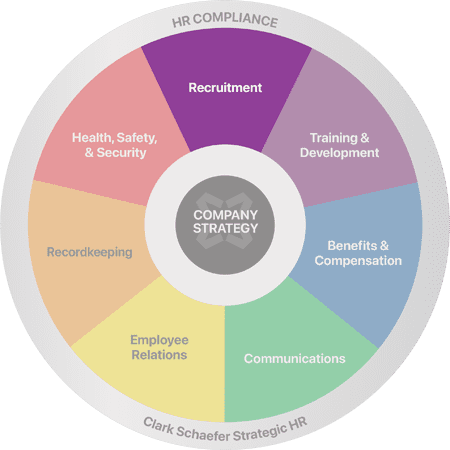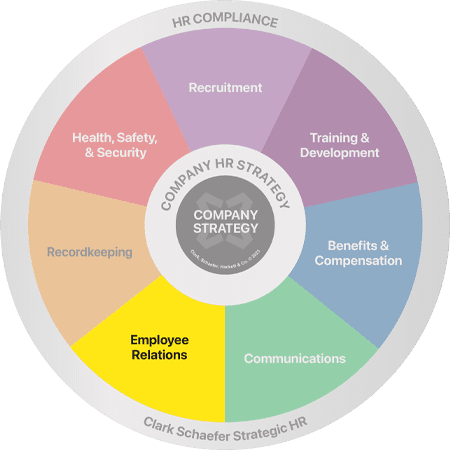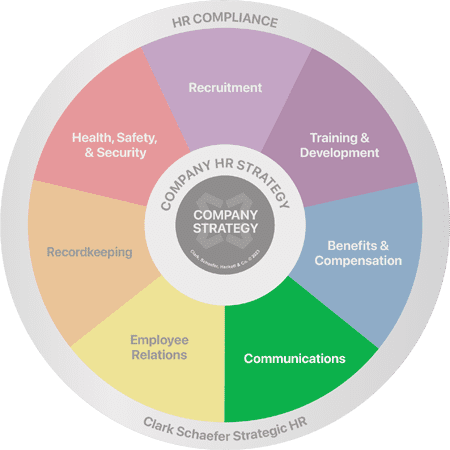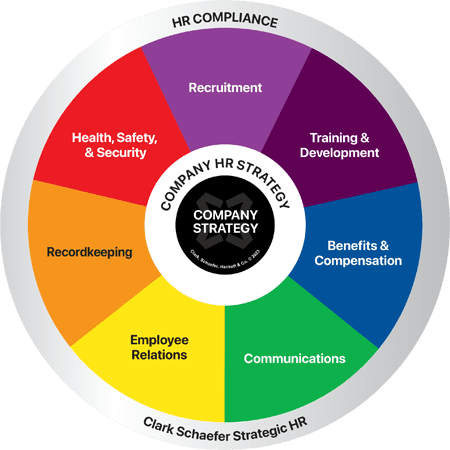What Is an RPO?
Last Updated on November 5, 2023 / Recruitment

HR Question:
I keep hearing about RPOs… but I don’t have a clue what they are. What are they, and should I be looking into one?
HR Answer:
It’s nearly impossible to keep up with all of the business acronyms, new or old, so it’s not shocking that you may not have heard of an RPO – particularly if you work outside of the HR space. An RPO – or Recruitment Process Outsourcing – can be beneficial to all kinds of companies, particularly if you’re working with limited staff dedicated to human resources.
What is an RPO?
The Recruitment Process Outsourcing Association defines RPOs as something akin to business process outsourcing, where “an employer transfers all or parts of its recruitment processes to an external service provider.” While that might sound intimidating, think of it this way – an RPO takes care of clearing your desk of resumes, pending background checks, job descriptions desperate for review, and all of the other paperwork that goes along with hiring new employees. An RPO can operate as a seamless extension of your organization throughout the entire recruiting and selection process.
An RPO will require an element of transparency that you may not be used to, but don’t worry, it’s in the name of better service. An RPO will want to understand your organizational culture, how you typically approach your recruitment process, the reason why you’ve done it this way in the past, and previous candidates that you’ve worked with or considered. This will keep the RPO team from spinning wheels already spun while making sure to move your process forward to find the best candidates who fit your needs and your organizational culture.
Benefits of an RPO
Not only does an RPO take care of the more tedious and time-consuming aspects of talent acquisition, but they can also tackle some of the softer approaches that recruiting calls for in today’s market. With the additional time and attention RPO teams are able to afford candidates, they can create the “human touch” that is so often called for in a recruitment process. Don’t believe us? Check out Monster’s article on candidate experience and why it matters.
RPOs can also be a significant money-saving recruitment solution. When you consider the average placement rate of many staffing firms – which ranges from 25-40% – versus the hourly rate of many RPOs, you can save thousands of dollars. For example, take a new manager position with a target salary of $60K a year. If you were to work through a staffing firm, that new hire could cost you between $15,000 – $24,000, not to mention the time and energy put in by your team to hire and onboard this individual. Should you work with an RPO (with an hourly rate of $150) using an average of 55 hours to fill a position, you’re only spending $8,250 – a cost-savings of almost $7,000 – $16,000. This provides a compelling argument for using an RPO if you’re seeking buy-in from your CFO.
Is an RPO right for you?
Even if an RPO is a great process for some businesses, it’s not meant for all. This tends to be a good recruiting solution for businesses that have a lean or limited recruiting team. If you don’t have the resources or your plate is too full, reaching out to an outsourced recruiting firm can keep your timeline moving with a limited time commitment on your part.
If you don’t need help month-in, month-out or your needs ebb and flow more than you can plan for, an RPO may be a good fit. Ideally, their consultative approach should be able to be turned on or off when your needs call for them.
Or perhaps you may need a recruiting expert or a strategic partner. You and your team might recognize the limits of your understanding or knowledge in recruiting while doing your best to avoid compliance issues. An RPO provides an opportunity to partner with a team of talent acquisition experts who can help to support your recruiting and compliance needs.
What to look for in an RPO
While there are many RPOs out there, not all are the same. When trying to assess which RPO is right for you, consider the following items:
Expertise
If you’re handing off your recruitment process with an increased level of transparency, you want to make sure you can trust the team with which you are partnering. Take a look at the level of expertise the company boasts. What is their approach to talent acquisition? Are they thought leaders in their industry? Do they create and share helpful content? Are they able to speak to providing a positive candidate experience, data analytics, and cost-savings?
Examples & Testimonials
Take a look at their online reviews. Have others in your industry used this RPO? Is this company able to speak to the experience that both candidates and clients have had during their time using their services? Does this company have experience in your industry and understand the nuances that might come with your jobs? Consider sharing your recruiting challenges and ask how they intend to address them. Or, ask about the challenges they have faced recruiting in your industry and how they have overcome those challenges.
Clear Communication
Can this company clearly outline their costs and how they will save you money? Can they provide an accurate prediction of potential costs you may encounter along the way? Are they as timely with you as they are with candidates? How will they communicate progress with you? This may be another good reason to dig into your network and seek client/candidate testimonials to see what others say.
As with any business service you consider working with, be sure to do your homework first to ensure you find the best RPO for your organization.
Thank you to Melinda Canino and Samantha Kelly for contributing to this HR Question of the Week.
Do you think an RPO might be a fit for you? Strategic HR can tackle your recruiting challenges so you can have time to do what you do best. Learn about our approach to Outsourced Recruitment or Contact Us today.







